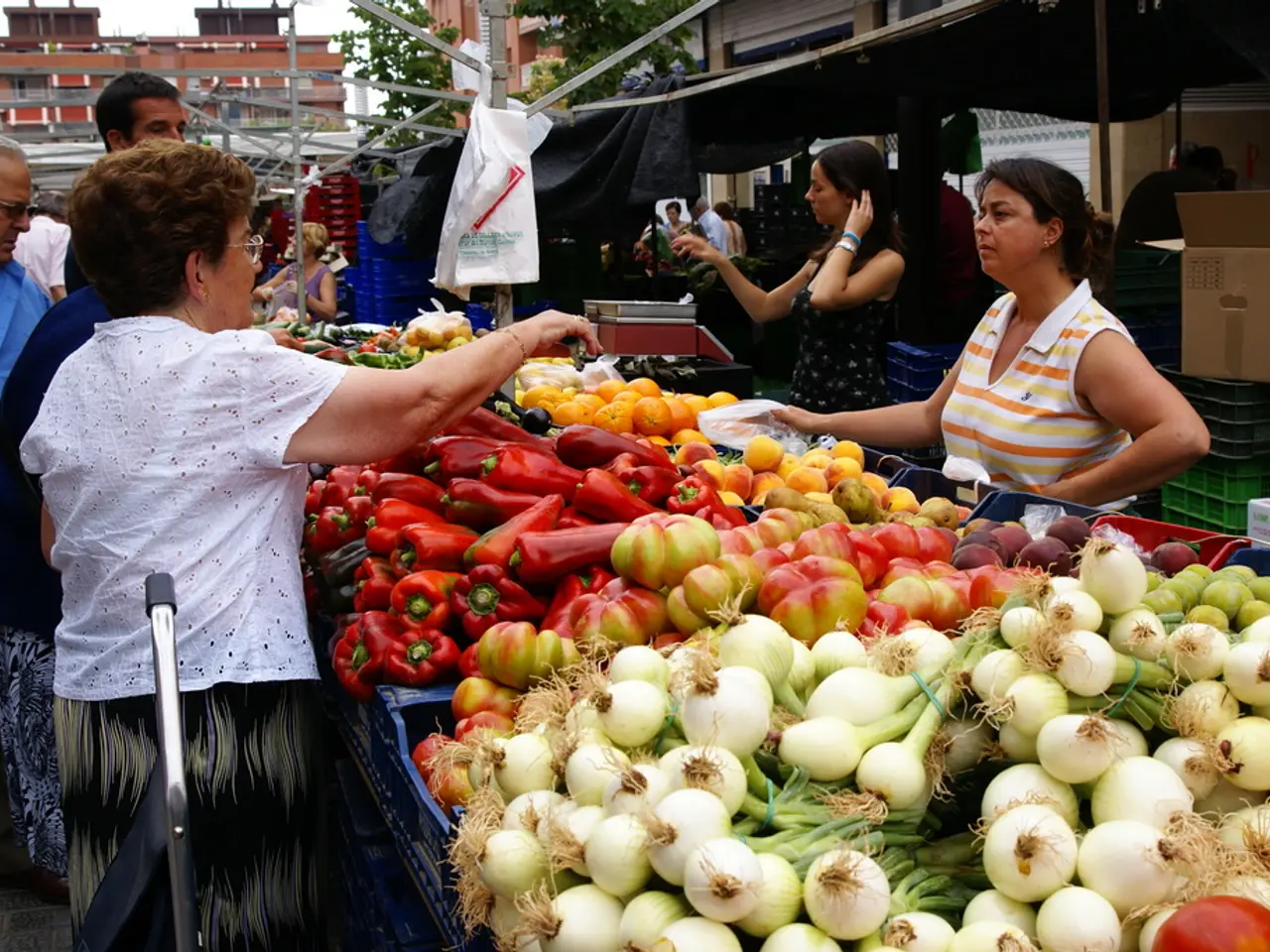Talks on plastic waste postponement concluded, negotiations will proceed
The latest round of negotiations for a globally binding agreement to combat plastic pollution, known as the global plastics treaty, took place in Geneva in August 2025. However, these talks failed to reach an agreement, with negotiations set to resume at a later date [1][2][4].
The treaty aims to address the entire lifecycle of plastics, from design to disposal, and would set binding targets for countries to reduce plastic pollution worldwide [1][3]. However, the negotiations have faced significant challenges, primarily due to disagreements over imposing production limits on plastics and whether to prioritize such limits or bolster recycling infrastructure [2].
Another contentious issue is how to manage hazardous chemicals in plastics and protect communities disproportionately affected by pollution [2]. A key group blocking progress has been petrochemical-producing nations ("petro-states") and fossil fuel companies, who have lobbied against stricter enforceable measures [3][5].
Despite the lack of consensus, UN leaders and climate/environment leaders, including UN Secretary-General António Guterres and UNEP Executive Director Inger Andersen, have emphasized that all countries want to stay engaged and continue negotiations [4]. However, stakeholders including waste and recycling industries are disappointed by the delay in finalizing the treaty, which was initially targeted for agreement by the end of 2024 [2].
It is estimated that there are currently 152 million tons of plastic waste accumulated in rivers and oceans worldwide, polluting the environment, air, and killing fish and other creatures, posing a threat to human health [1]. Plastic waste has even been found in organs and even the brain [1]. Without measures, plastic production could reach almost 600 million tons per year by 2050 [1].
A large part of the plastic production is single-use products, including packaging [1]. The global pact, which is yet to be finalized, is intended to be a legally binding contract and covers the entire lifecycle of plastic, from production to waste management [1].
The hoped-for agreement was expected to be finalized by Thursday evening [2]. However, the contract has not yet been finalized, and it remains unclear when the session will continue [2]. Some countries, such as Saudi Arabia, Iran, and Russia, are doing everything they can to prevent production restrictions on plastic due to their raw material resources [1].
In summary:
| Aspect | Status / Details | |------------------------------|-----------------------------------------------------------------------------------------------------------------| | Treaty Objective | Legally binding global agreement to end plastic pollution, addressing all lifecycle stages of plastics | | Latest Negotiations | INC-5.2 Geneva meeting August 2025 failed to reach agreement; negotiations to resume at a later date | | Key Challenges | Disagreement on production limits vs. recycling focus; chemical management; protecting frontline communities | | Main Blocking Nations | Petrochemical states, fossil fuel industry-backed countries opposing stricter binding rules | | Global Support | Over 145 countries involved initially; a majority ambitious group supports strong treaty | | Official Statements | UN leaders regret failure but affirm ongoing commitment to continue negotiations | | Industry Reaction | Waste/recycling sectors disappointed over continued delay |
The talks remain ongoing with hopes that future rounds can overcome these geopolitical and economic complexities to deliver the world’s first global plastics treaty [1][4][5].
- The global plastics treaty, currently in the negotiation phase, aims to address climate-change concerns related to plastic pollution by setting binding targets for countries to reduce plastic waste worldwide, particularly addressing the entire lifecycle of plastics, from design to disposal.
- However, the treaty's negotiations have faced significant challenges due to disagreements over imposing production limits on plastics and bolstering recycling infrastructure, as well as managing hazardous chemicals in plastics and protecting communities disproportionately affected by pollution.
- The environmental-science community and policy-and-legislation experts have been closely following the general-news reports about these negotiations, emphasizing the urgent need to finalize the treaty to combat plastic pollution and protect the environment for future generations.






